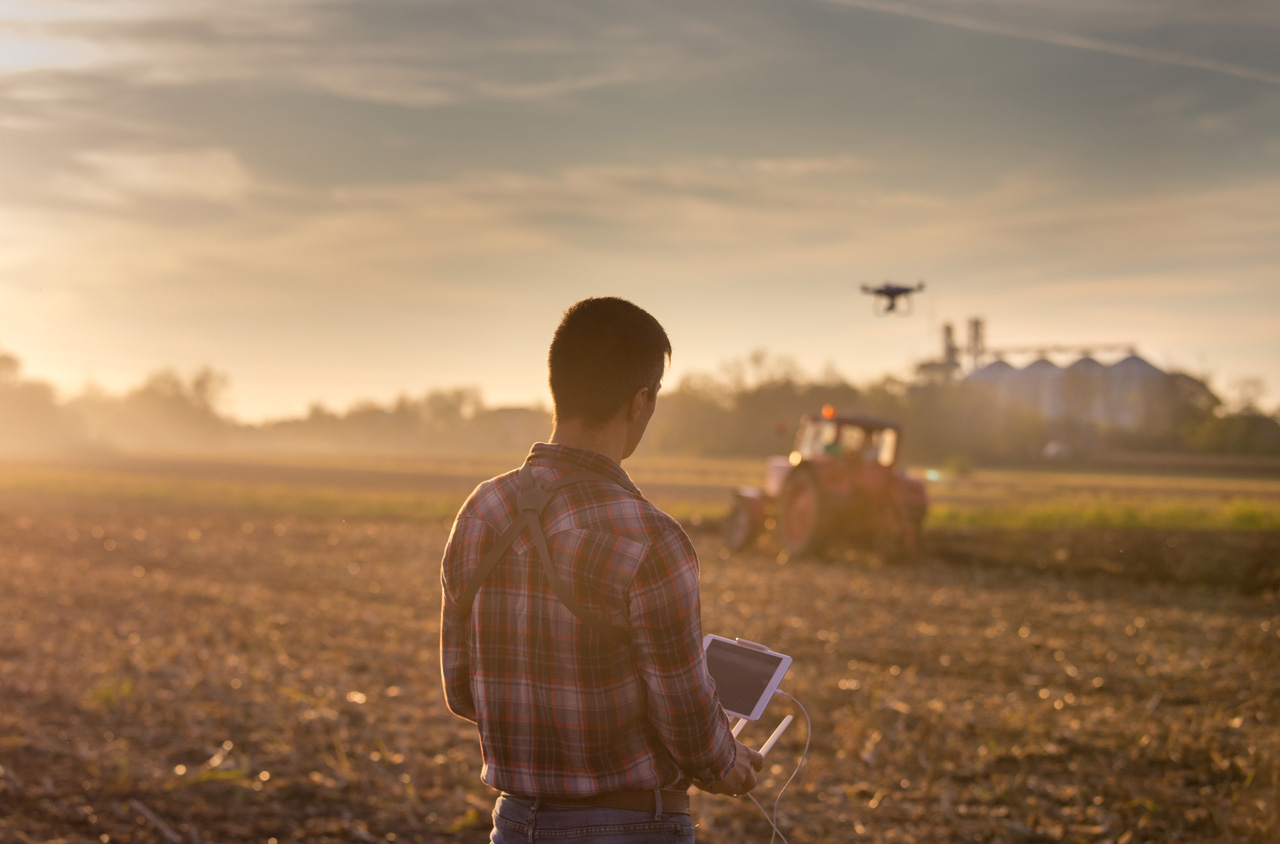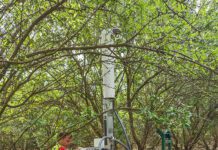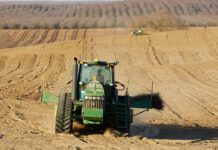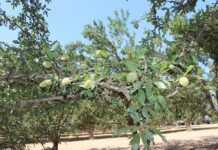New agricultural technology showcased at the 2019 Almond Conference included a micro tensiometer for irrigation management, a noninvasive hive grading tool, a unique delivery system for crop protection and a data collection platform for managing pesticide applications, harvest activities and other field operations.
Michael Santiago, CEO of FloraPulse said the fully automated sensing device eliminates the labor associated with the pressure bomb, the gold standard in determining tree water stress.
The patented sensors, which have undergone field trials in winegrapes, almonds and apples, are embedded in the tree trunk to monitor water stress. In the trials, Santiago said, their accuracy compared to manual pressure bomb readings. The sensors can continuously monitor water stress and relay the data.
Beekeeper Ellie Symes said Verifli, a product developed by The Bee Corp, eliminates the need to open beehives to measure colony strength when hives are delivered for pollination.
Verifli measures colony size by analyzing an infrared picture of a hive. Verifly converts the image to data, then adjusting calculations based on local weather data, biological properties of the colony and heat diffusion, it determines colony size.
This tool is valuable for both the almond grower and the beekeeper, Symes said as it ensures the hives delivered meet specifications of the pollination contract.
Bee Vectoring Technology (BVT) has developed an inoculum dispenser system that is incorporated into the lid of a commercial beehive. Commercially reared bees enter the dispenser through a one-way return flap and exit through another portal. As they do so, they pass through and pick up powder inoculum material and deliver it to the blooms.
This delivery system, Ashish Malik of BVT said, uses both honey bees and bumble bees.
The process of bee vectoring has the same principles as natural pollination and does not impose any health risks to bees, people or the environment.
Bees seeking almond blooms can deliver materials for biological control of pathogens to the flowers which are a portal for entry of pathogens.
Fieldin’s smart farming platform helps specialty crop growers manage and optimize pesticide applications, harvest activities and other field operations. The company’s proprietary sensors and apps provide connections with machinery. All data is recorded in real time and transmitted to the Fieldin platform for analysis. Recommendations and conclusion are available in the dashboard or via emailed reports. In-field sensors provide managers with data 365 days a year at every stage of the growing cycle.
Representative Iftach Birger said the platform provides data via sensors to track spray applications, shaker efficiency and machine operations. The tracking will alert mangers if applicators miss trees or if weather conditions are not optimal for applications. At harvest the sensors allow comparison of multiple machines and operators in different blocks of trees. That field data, Birger said, allows growers and managers to see where efficiencies can be improved.












